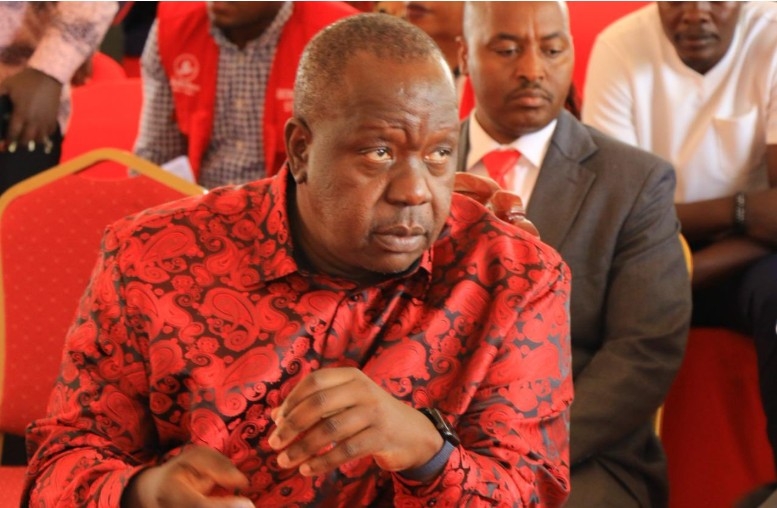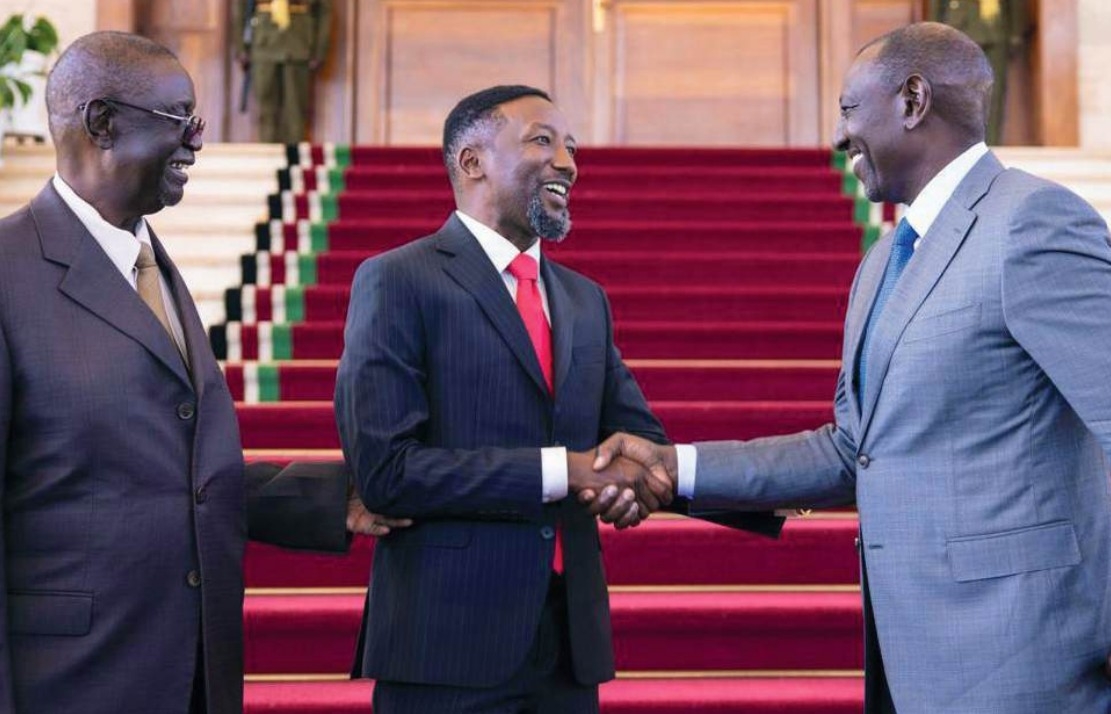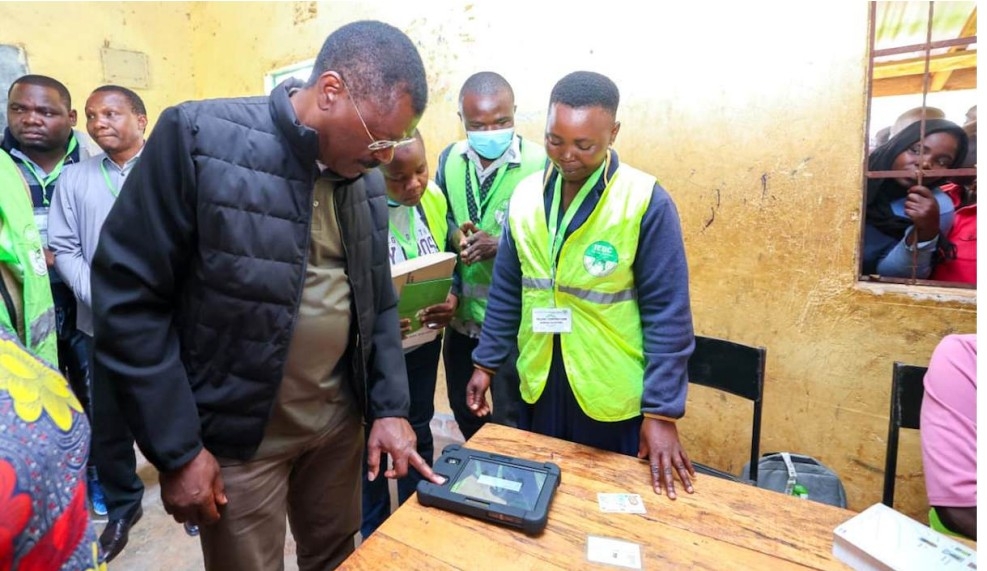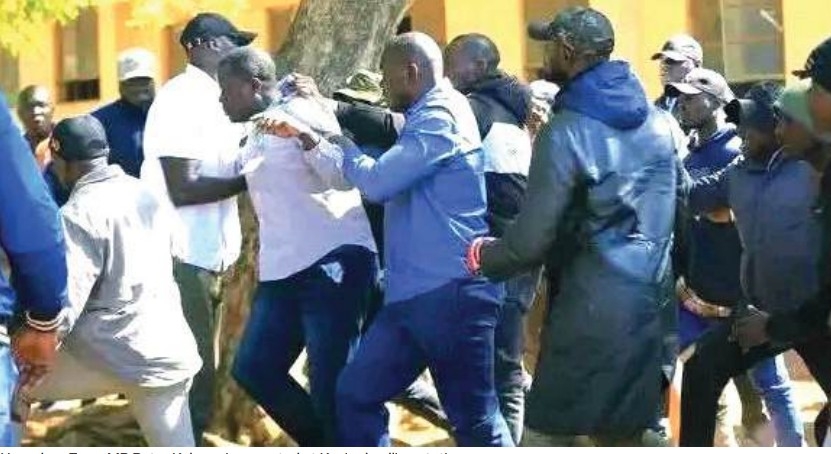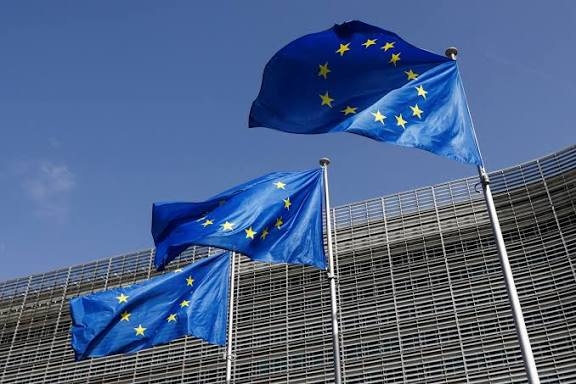
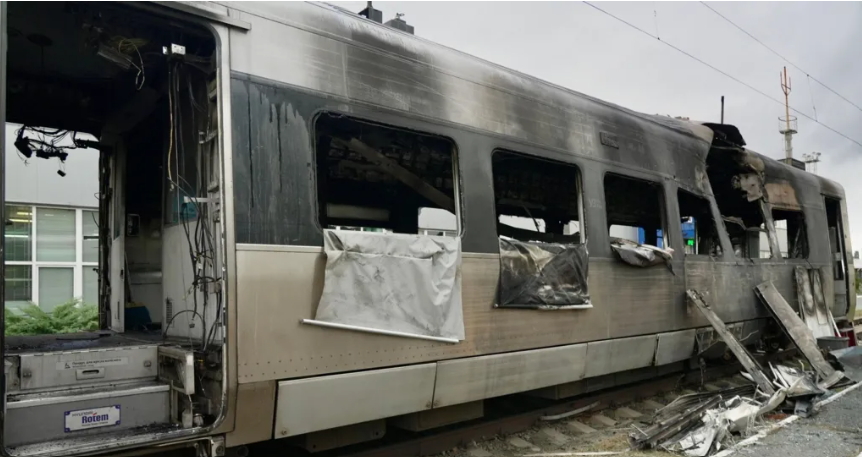
Propped up in her hospital bed, railway conductor Olha Zolotova speaks slowly and quietly as she talks about the day her train was hit by a Russian drone.
"When the Shahed [drone] hit I was covered in rubble. I was in the second car. People pulled me out," she says.
"My eyes went dark. There was fire everywhere, everything was burning, my hair caught fire a little. I was trapped."
Olha is a victim of Russia's increasingly frequent attacks on the Ukrainian railway system – vital infrastructure that keeps the country moving three and a half years since Moscow's full-scale invasion.
Ukraine's 21,000km-long (13,000-mile) railway system is not merely a mode of transport, it is a central pillar of Ukraine's war effort and a powerful national symbol of resilience.
Olha's injuries were severe, so she was transported more than 300km (185 miles) to a special hospital in the capital, Kyiv, dedicated to railway workers.
She has just had surgery on her hip and a metal plate inserted into her leg.
Her train was hit earlier this month at a station in Shostka in the northern Sumy region.
As rescue workers sought to tend to the injured, a second Russian drone struck the station – a type of hit known as a "double tap".
Ukraine says civilians and rescue teams were directly targeted, which would constitute a possible war crime under international law.
Thirty people in total were hurt. Of those treated in hospital, three were children, and one man was found dead, possibly from a heart attack.
According to national rail operator Ukrzaliznytsia (UZ), there were twice as many attacks in September as there were in August - not just on trains but on the infrastructure that supports the rail network.
In fact, half of the attacks on the railways since the beginning of the war have taken place in the past two months, says Oleksiy Balesta, a deputy minister at the department that oversees the rail network.
"Almost every day for the last two months, we have been experiencing targeted attacks on Ukrzaliznytsia infrastructure and on power transmission facilities," he says.
Balesta suggests Russia has been "hunting for locomotives - deliberately targeting both freight and passenger trains".
Behind the deputy minister is a wrecked locomotive, part of Ukraine's intercity fleet that was targeted in eastern Kyiv on one particularly devastating night at the end of August.
The attack also included a strike on a key rail junction in Koziatyn in the central Vinnytsia region, creating delays and forcing significant diversions.
As he speaks, Balesta receives a message from his assistant. There has been another attack on a train between Kramatorsk and Sloviansk in the eastern Donetsk region, close to the front line.
Already today there have been three bomb threats on other services, forcing staff to evacuate the trains until explosives experts have given the all clear.
Officials here point to two principal factors which they believe have led to this intensified spate of attacks.
First, Russia's increasing capacity to produce large numbers of relatively cheap Shahed-type drones each day, which are increasingly able to fly greater distances.
Then there is the near stalemate on the front line - and the consequent shift in focus by the Russian army to disrupt supply lines instead.
"It's a very clear battle for the railways," says Oleksandr Pertsovskyi, chief executive of UZ.
"The enemy is trying to stop us completely. This is part of a war tactic meant to cause panic among civilians, destroy our economy, and make the country unliveable."
Repairing damage as fast as possible, co-ordinating with the military and training its staff to recognise potential sabotage threats are all key to Ukraine's response, says Pertsovskyi.
"Lastly, we always have Plan B, C and D. The goal is never to cancel a single service or destination. If a train can't run, we combine trains and buses."
On top of the practicalities, there is also a clear eye on the morale of passengers.
"Recently, a train from Kyiv to Sumy had to be rerouted, adding six hours due to safety reasons," says the UZ chief.
"A passenger posted on social media that she'd be spending her birthday on the train instead of with her boyfriend - but said she understood. We sent her a cake and flowers."
The constant threat of missiles and drones means flying people and supplies around the country is nearly impossible.
Much of the grain and iron ore exports that Ukraine's economy depends on is moved by train to the southern Black Sea ports, and westward through Poland.
Visiting political leaders from all around the world also all enter the country by train – "iron diplomacy", as Ukrainians call it. The workers who have been caught up in attacks are called "iron heroes".
In the grandeur of Kyiv's central station, another government minister awards certificates of bravery to the latest group of Iron Heroes - those who fought the fires on the night the intercity depot was attacked.
"It was very scary because there was a lot of fire and damage," says Oleksandr Leonenko, who helped extinguish the flames. He proudly shows me his certificate and says it will mean some extra pay.
The uptick of attacks on the railway has coincided with Russia targeting Ukraine's power infrastructure. One recent set of attacks left hundreds of thousands without electricity.
Ukraine has meanwhile launched a series of attacks on Russian oil refineries and claims to have inflicted petrol shortages in many areas.
As Ukrainians eye their fourth winter since Russia's full-scale invasion began, UZ's Oleksandr Pertsovskyi believes the attacks on their infrastructure could bring about the hardest winter yet.
In a message echoed by many Ukrainian officials, he calls on the country's allies to supply stronger air defences.
"But we're not desperate. We're preparing mentally and practically. Ukrainians remain strong in spirit."
That spirit looks set to be tested to the limit in the coming months.
Additional reporting by Mariana Matveichuk and Anastasiia Levchenko









